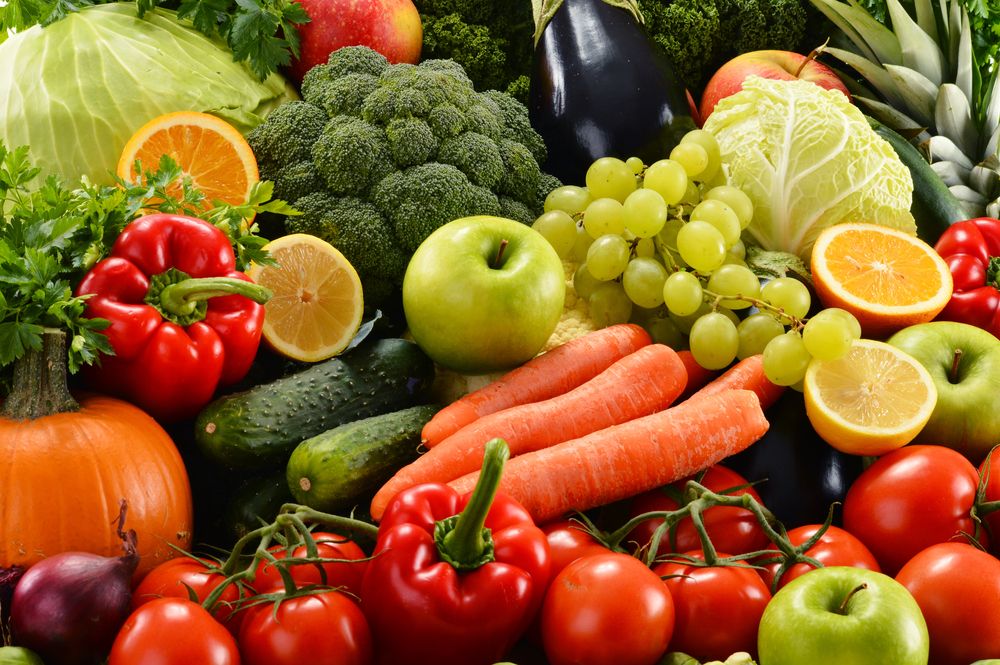During your upbringing, you likely heard the repetitive mantra of "eat your fruits and vegetables." While you may have reluctantly consumed your share of Brussels sprouts, you might have pondered, "Why do adults place such emphasis on fruits and vegetables?" The answer is quite evident: these foods rank among the healthiest options globally.
Fruits and vegetables stand as nutritional powerhouses, providing an extensive range of vitamins, minerals, fiber, antioxidants, and other essential nutrients essential for promoting good health and longevity. Their myriad of health advantages encompasses a reduced risk of chronic diseases, including heart disease, diabetes, and obesity, improved gut health and digestion, diminished inflammation, heightened energy levels, and effective management of a healthy weight.
If your goal is weight loss, incorporating more fruits and vegetables into your diet is non-negotiable. A study conducted in 2020 revealed that women who increased their consumption of whole fruits and vegetables experienced sustainable weight loss, a reduced risk of becoming overweight or obese, and improved portion control and eating pace.
"Maintaining an energy balance is crucial for individuals aiming for weight loss," explains Gianna Masi, RDN, a registered dietitian affiliated with Barbend. In simpler terms, we need to consume fewer calories than we expend. "Fruits and vegetables play a significant role in weight loss because of their voluminous nature while still being low in calories. When compared to calorie-dense processed foods, we can indulge in larger servings of fruits and vegetables, allowing us to eat more in terms of volume. This aspect can make dieting more enjoyable, as it allows for the consumption of larger quantities of food."
However, with numerous delectable and nutritious options available, it can be challenging to determine which fruits and vegetables are most beneficial for weight loss. This is why we've consulted with Trista Best, RD, a registered dietitian representing Balance One Supplements, and Gianna Masi, who have shared their insights on the top plant-based foods to include in your diet for healthy weight loss and long-term weight management.
Continue reading to discover more.
1) Berries
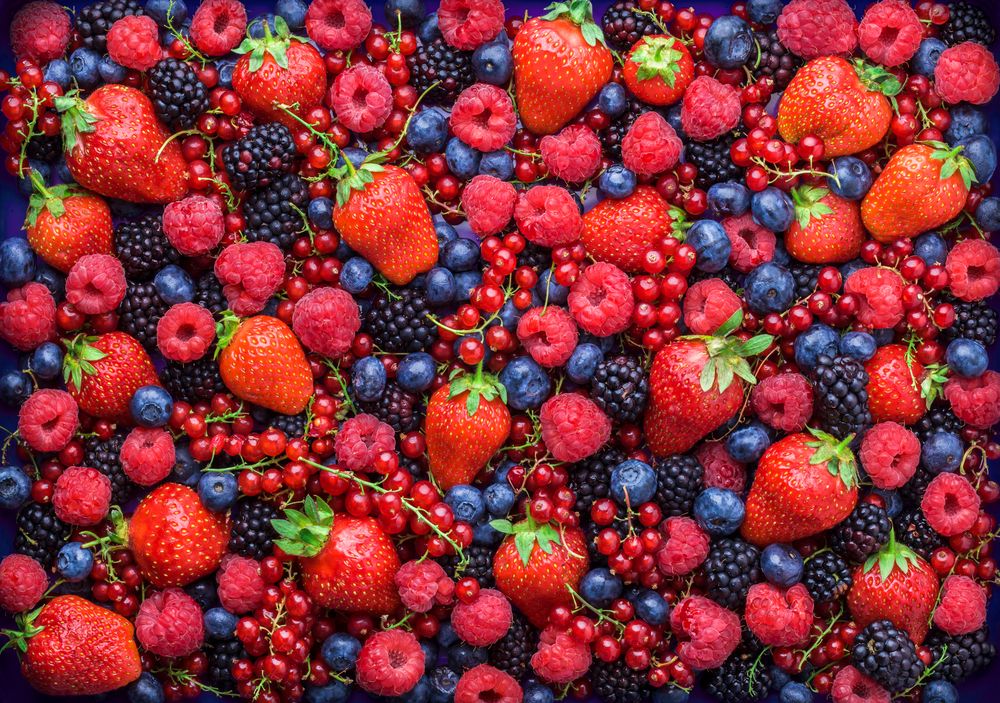
Berries emerge as a leading candidate for lowering BMI, as indicated by a study featured in Nutrients. Among these, blueberries stand out as they are linked to minimal weight gain and a reduced risk of obesity and type 2 diabetes. Trista Best emphasizes, "Blueberries are low in calories and high in fiber, promoting a sense of fullness and satisfaction after consumption. They also boast a wealth of antioxidants and other essential nutrients crucial for overall health."
2) Cruciferous vegetables
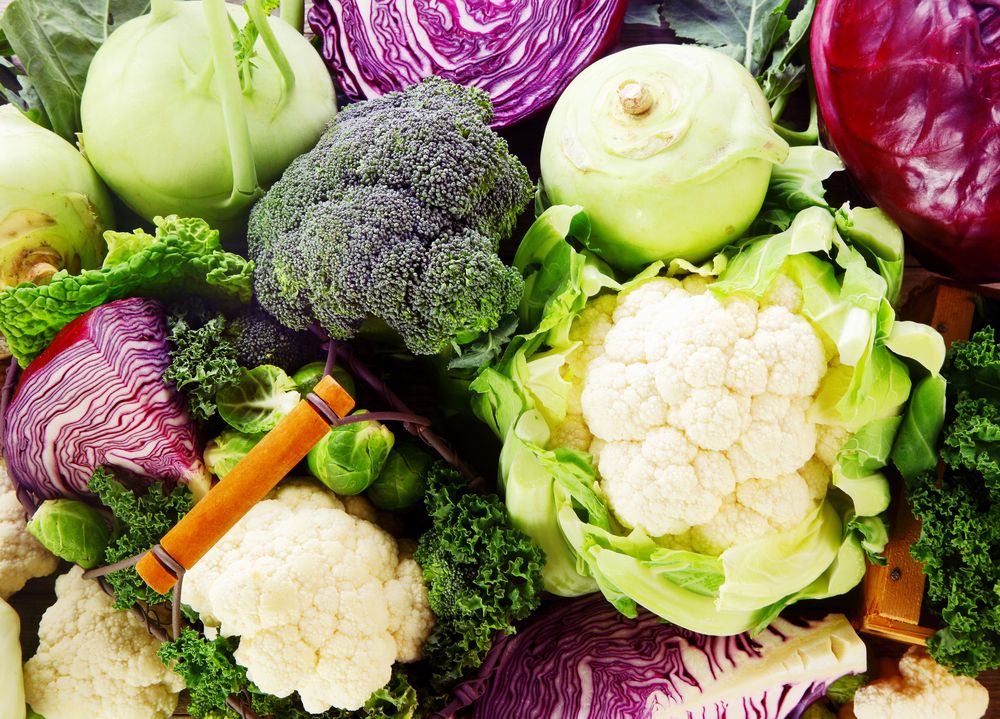
Cruciferous vegetables, including broccoli, cauliflower, kale, and Brussels sprouts, stand as nutritional powerhouses offering a plethora of health advantages. While they are primarily recognized for their cancer prevention properties, they also excel as weight loss aids due to their low calorie content, high fiber levels, and nutrient-rich composition.
Trista Best explains, "Cruciferous vegetables can contribute to weight loss because, like most vegetables, they have a low-calorie density and provide a substantial amount of dietary fiber. These vegetables contain potent antioxidants known to reduce cytokines and NF-kB, which are compounds that drive the inflammation process. When these factors accumulate in the body and persist, they can lead to significant inflammation. The reduction in inflammation, combined with the satiety provided by the high fiber content, supports the weight loss journey."
3) Avocado
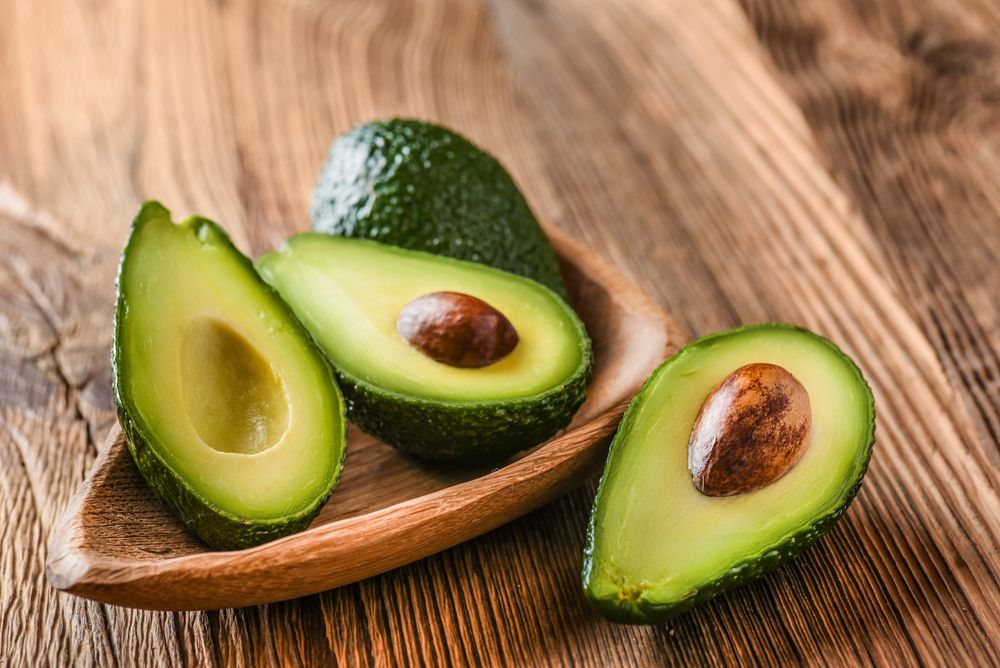
Despite their calorie-density resulting from a high-fat content (as fats provide nine calories per gram, compared to four calories per gram from protein and carbohydrates), avocados prove to be a remarkable asset in your quest for weight loss. Based on the findings of the Adventist Health Study, a substantial cohort study encompassing over 55,400 participants, avocado consumption led to a 15 percent decrease in the risk of developing overweight or obesity among high avocado consumers and a 7 percent decrease among low avocado consumers when compared to those who refrained from enjoying this delectable and nutritious fruit.
Trista Best underscores, "Although avocados are rich in fat, the majority of the fat consists of monounsaturated fats, which are considered healthy. Increasing the intake of monounsaturated fats can aid in reducing body weight and waist circumference."
4) Potatoes
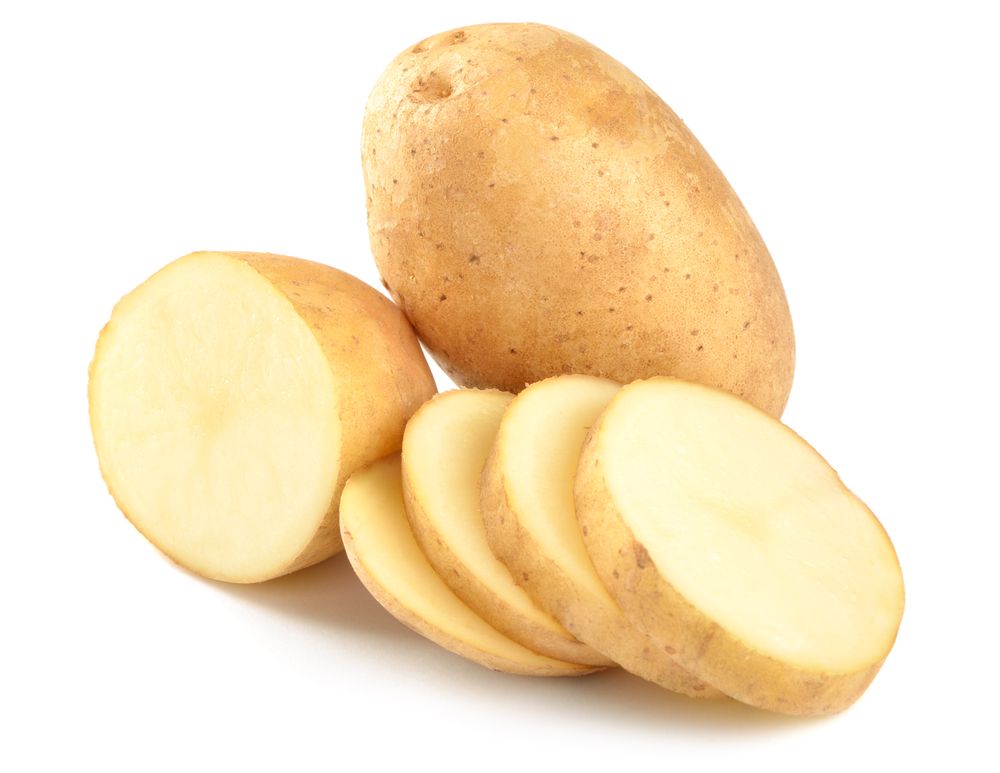
Potatoes have often faced unwarranted criticism for their status as a high-carb food perceived as detrimental to weight loss. However, this misconception couldn't be further from the truth. Potatoes are brimming with nutrients, healthy carbohydrates, and fiber, rendering them a wholesome inclusion in any weight loss meal plan. Indeed, a 2021 study published in Nutrients unveiled that potato consumption was linked to enhanced diet quality, heightened nutrient intake, and improved nutrient sufficiency.
Trista Best emphasizes, "Potatoes possess a low calorie count while offering substantial fiber content and other advantageous nutrients beneficial for weight loss. The calorie density of a boiled potato can fluctuate based on factors such as the potato's size, cooking method, and any supplementary ingredients. It's essential to acknowledge that adding toppings like butter or sour cream to a boiled potato will elevate its calorie density."
5) Cucumber
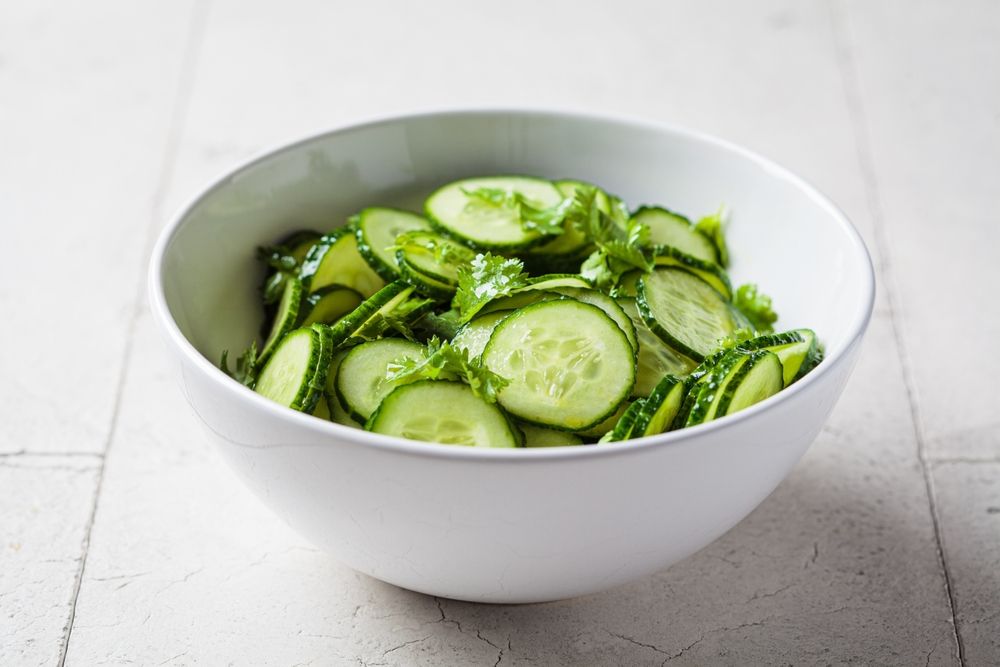
Cucumbers stand as a snack conducive to weight loss. With a water content of 96 percent and a mere 45 calories per eight-inch cucumber, they contribute to hydration and offer a gratifying crunch. Additionally, scientific studies indicate that cucumbers serve as a superb reservoir of antioxidants and vitamins, promoting overall well-being and facilitating weight loss.
6) Watermelon
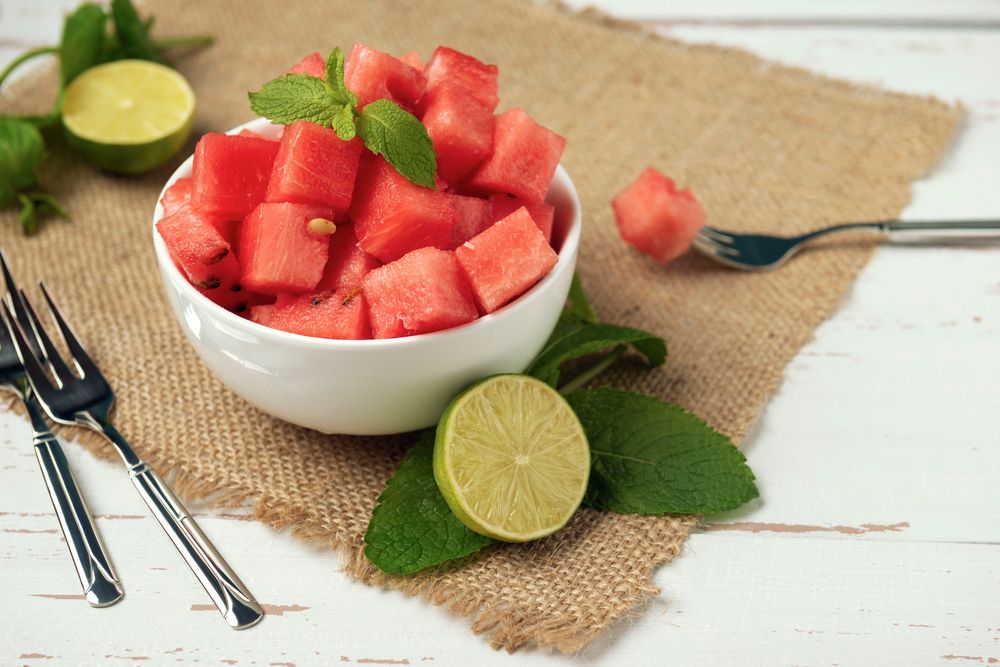
Watermelon stands out as an incredibly hydrating fruit with a low calorie count, rendering it a revitalizing option for those seeking weight loss. A 2019 study published in Nutrients highlighted that the consumption of watermelon can lead to a decrease in body weight, body mass index (BMI), blood pressure, and waist-to-hip ratio. This is attributed to its substantial water content, which promotes a sensation of fullness, and its inherent natural sugars, delivering delightful sweetness without the burden of additional calories. According to the USDA, 100 grams of watermelon contains just 30 calories.
7) Celery
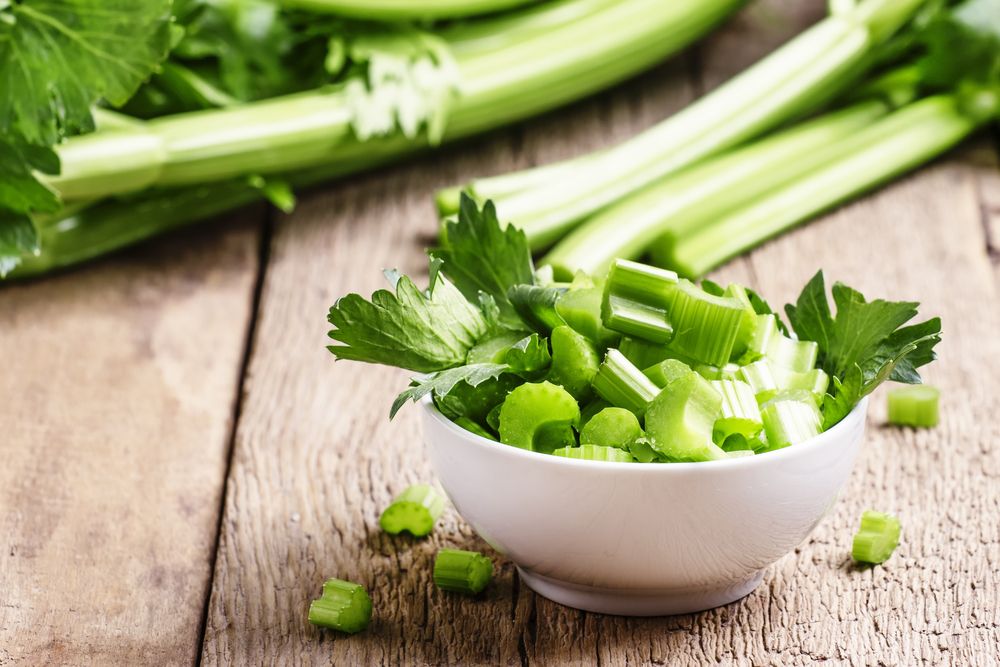
Celery holds a prominent place in the diets of weight-conscious individuals due to its meager calorie content and generous water content. A 2023 study published in Food Science & Nutrition revealed that participants who regularly incorporated celery powder into their diets experienced notably greater weight loss compared to those who did not. This crisp vegetable is often deemed a "negative-calorie" food, meaning that the energy expended during its digestion exceeds the energy it contributes. According to the USDA, 100 grams of celery contains 96 grams of water, 2 grams of fiber, and a mere 14 calories.
Gianna Masi elaborates, stating, "Fiber promotes prolonged satiety, which can be advantageous for individuals striving for weight loss. Additionally, fiber supports regular bowel movements and enhances gut health."
8) Peaches
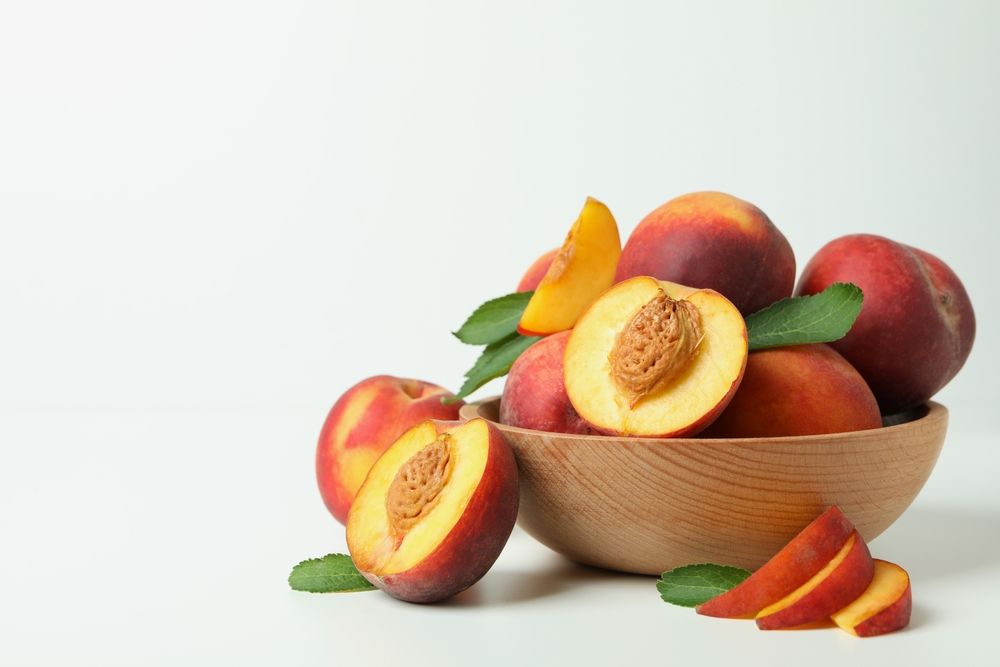
Peaches hold a special place as a delightful, juicy fruit, providing a wholesome substitute for sugary snacks. Each peach contains 63 calories, 2 grams of dietary fiber, and crucial vitamins and antioxidants that enhance your overall health and vitality, all while aiding in appetite control. Whether savored fresh or incorporated into salads, peaches represent a delectable and healthful addition to your weight-conscious eating regimen.
9) Zucchini
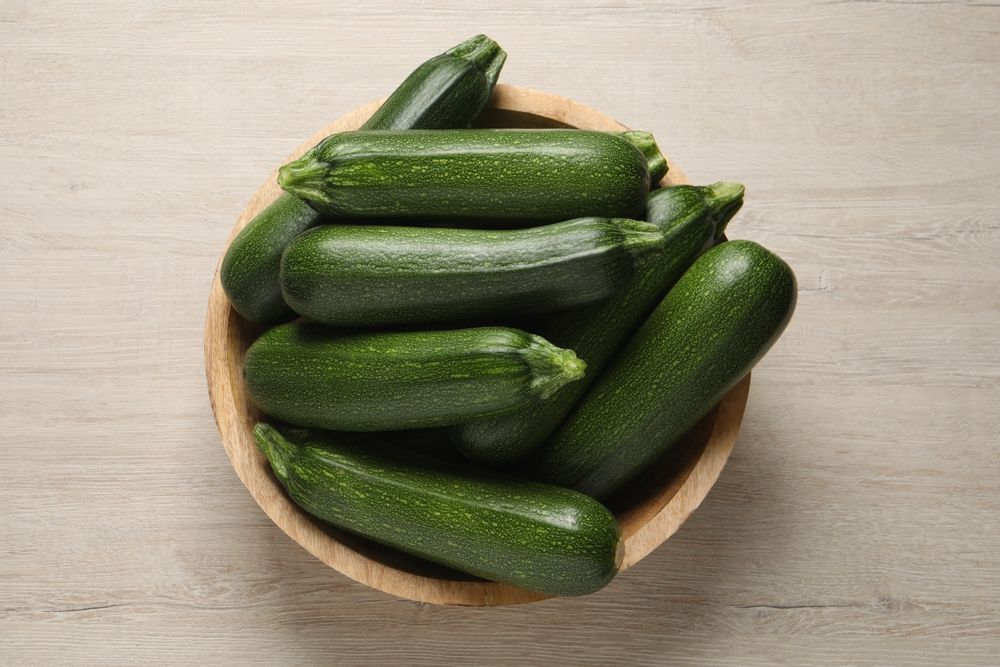
As per the USDA, zucchini stands out as a versatile and low-calorie vegetable, boasting a mere 21 calories for every 100 grams. Retaining the skin on zucchini introduces fiber into your diet, promoting healthy digestion and enhancing the feeling of fullness. A study from 2020 emphasized that incorporating nutrient-rich vegetables like zucchini, which are low in carbohydrates and brimming with essential vitamins and minerals, constitutes an excellent approach to maintaining a healthy weight.
10) Spinach
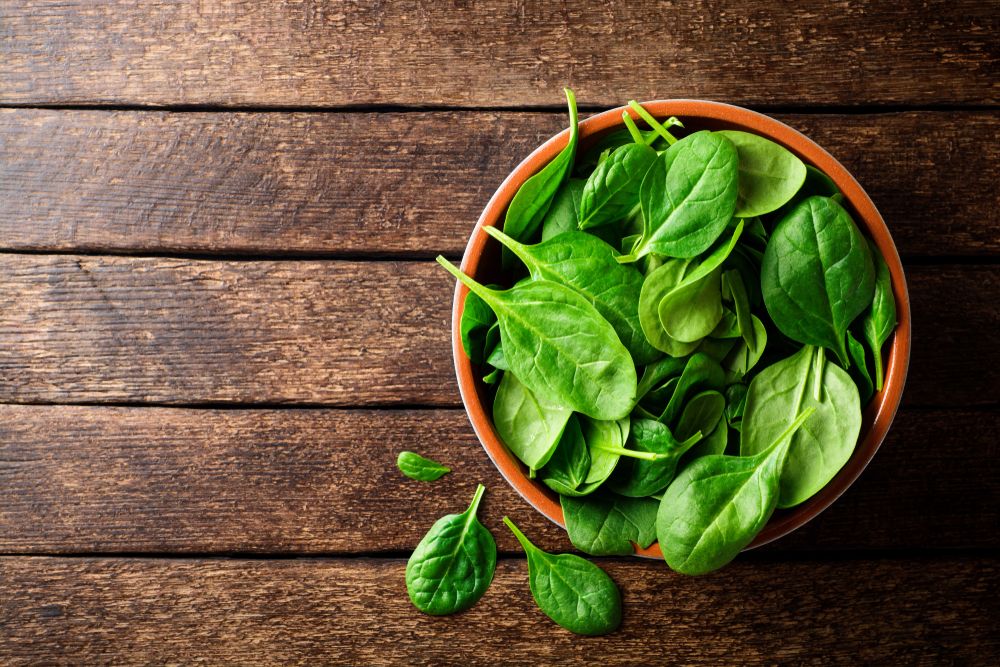
Spinach is a nutritional powerhouse that can assist in weight loss, thanks to its low-calorie profile, rich nutrient content, and high water content. According to the USDA, a single cup of spinach contains 27 grams of water, a mere 7 calories, and 1 gram of fiber. The presence of fiber in spinach contributes to meal volume, as highlighted in a 2023 study, which can facilitate weight loss by intensifying feelings of fullness, diminishing appetite, and curbing calorie consumption.
11) Citrus fruit
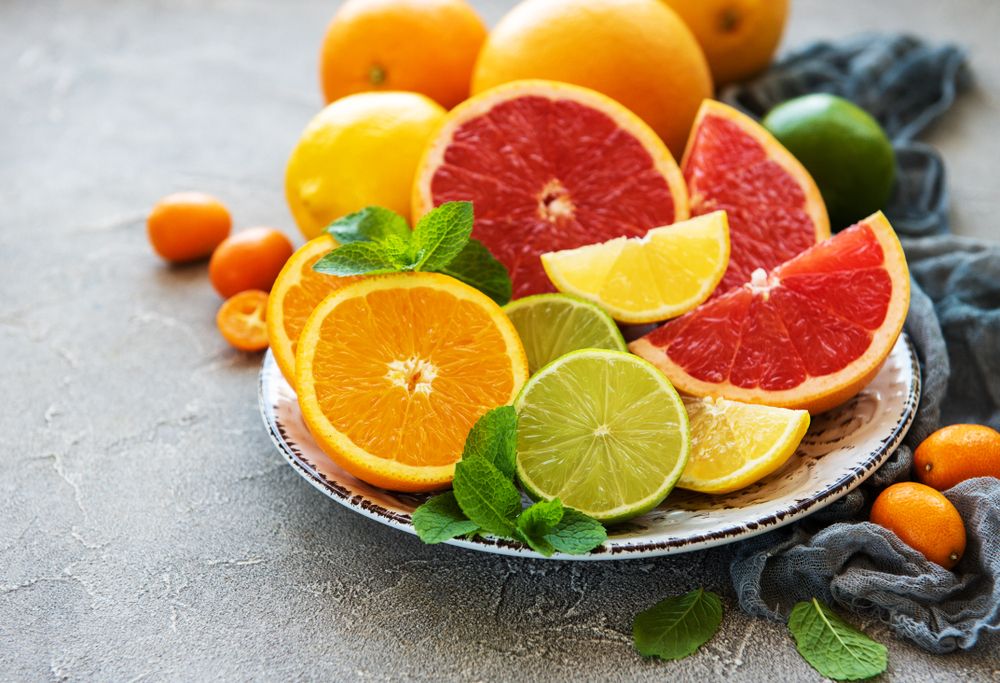
Citrus fruits, encompassing varieties like oranges, grapefruit, lemons, and limes, rank among the top fruits conducive to weight loss.
In a study published in Nutrients, researchers discovered that citrus fruits, particularly grapefruit, proved to be highly effective in reducing participants' body mass index (BMI). Gianna Masi explains, "Grapefruit can contribute to weight loss due to its relatively low calorie content and high fiber content, promoting a sense of fullness and satisfaction after consumption. Furthermore, grapefruit contains a compound called naringenin, which has demonstrated anti-obesity properties in animal studies."
10) Cantaloupe
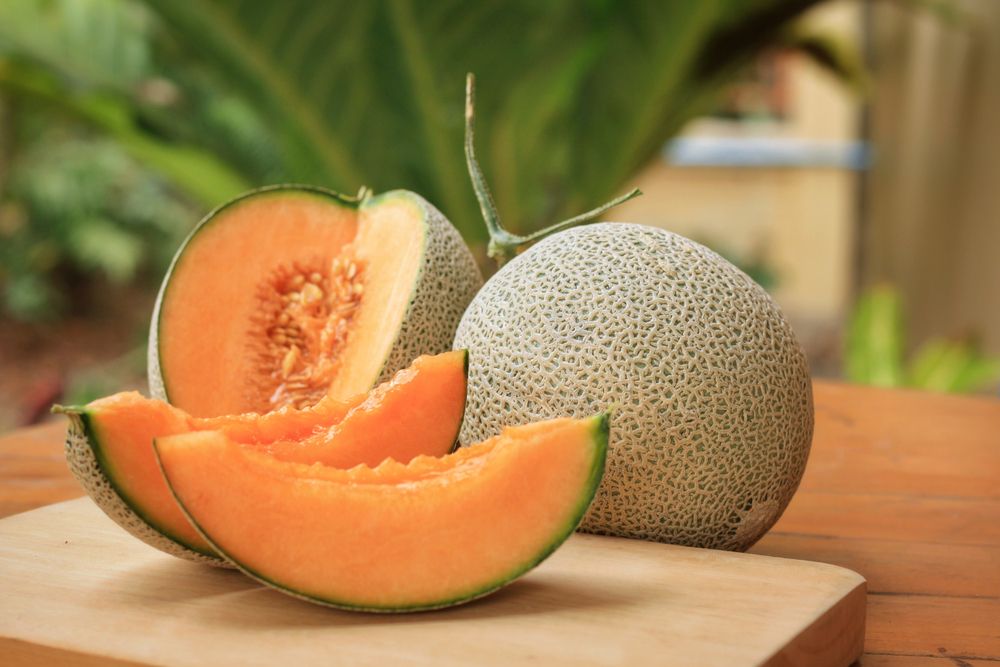
Cantaloupe presents a sweet and delightful snack option to bolster your weight loss endeavors. Its substantial water content contributes to hydration, and the fiber content, amounting to one gram per 100-gram serving, enhances the sensation of fullness and satisfaction. Furthermore, recent research suggests that cantaloupe can fortify your immune system by furnishing substantial quantities of vitamins A and C. Relishing 100 grams of cantaloupe translates to a mere 34 calories while providing your body with a nourishing and filling fuel source.
13) Papaya
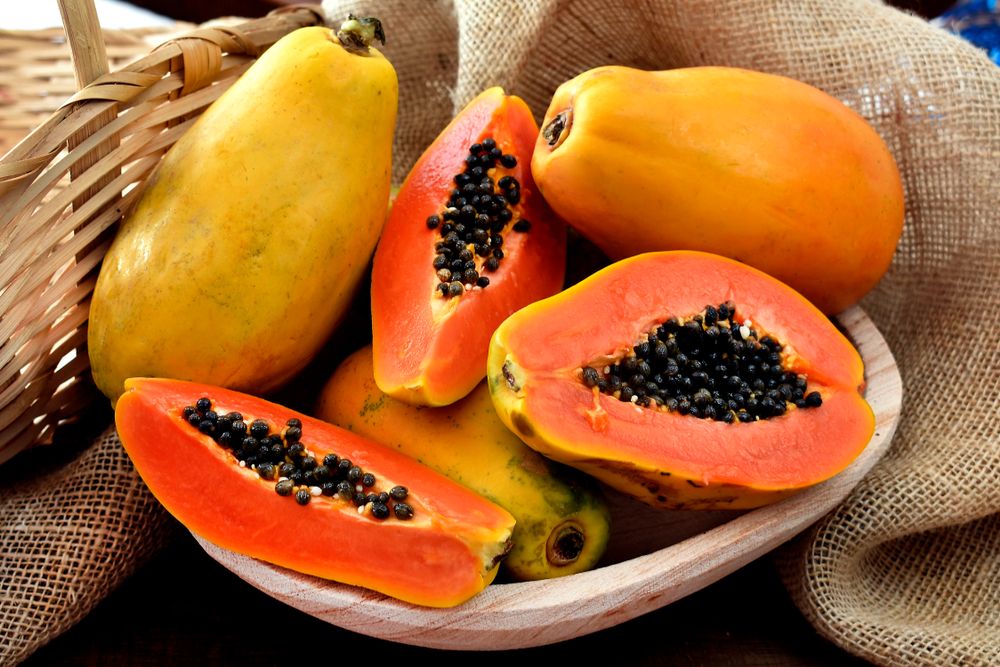
Papaya, boasting low calorie content and a generous dose of fiber, amplifies feelings of fullness while promoting effective digestion. According to the USDA, a 100-gram serving of raw papaya contains a mere 43 calories and 2 grams of dietary fiber. Furthermore, papaya stands as a valuable source of vitamins and enzymes, including papain, which studies indicate can play a role in supporting a healthy metabolism – the body's calorie-burning mechanism.
14) Radishes
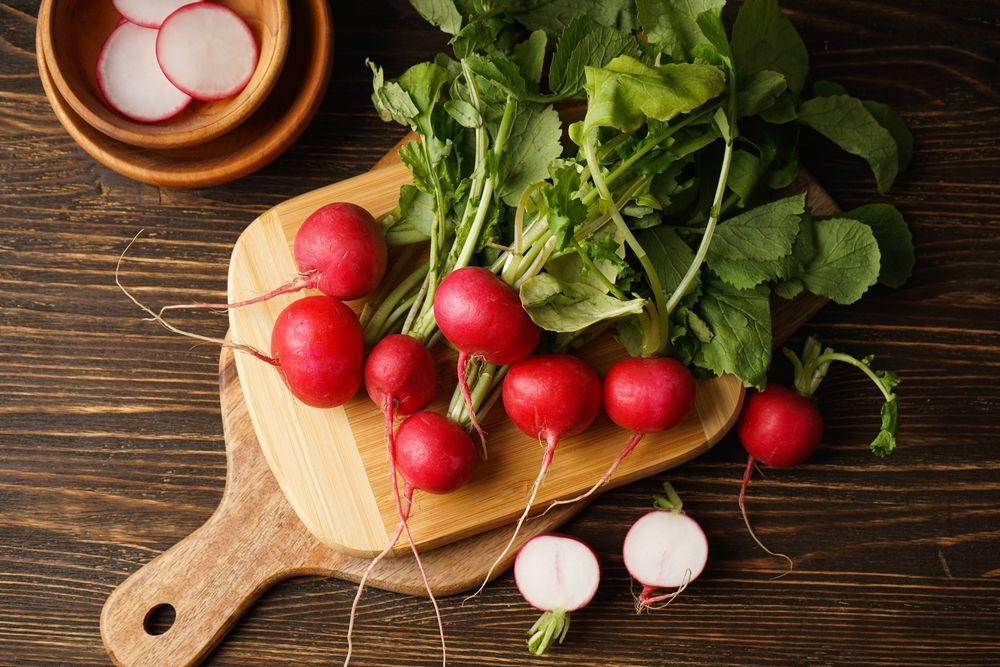
Radishes are a crunchy and zesty vegetable that imparts a delightful taste and texture to salads and snacks, all the while being exceptionally low in calories. A half-cup serving of sliced radishes carries a mere 9 calories and 1 gram of dietary fiber. Recent research published in Trends in Food Science & Technology in 2021 suggests that radishes, owing to their high-fiber, low-carb attributes, can heighten sensations of fullness without introducing an excessive calorie load. Furthermore, they serve as a superb source of vitamins and antioxidants, aiding in the successful progression of your weight loss journey.
15) Plums
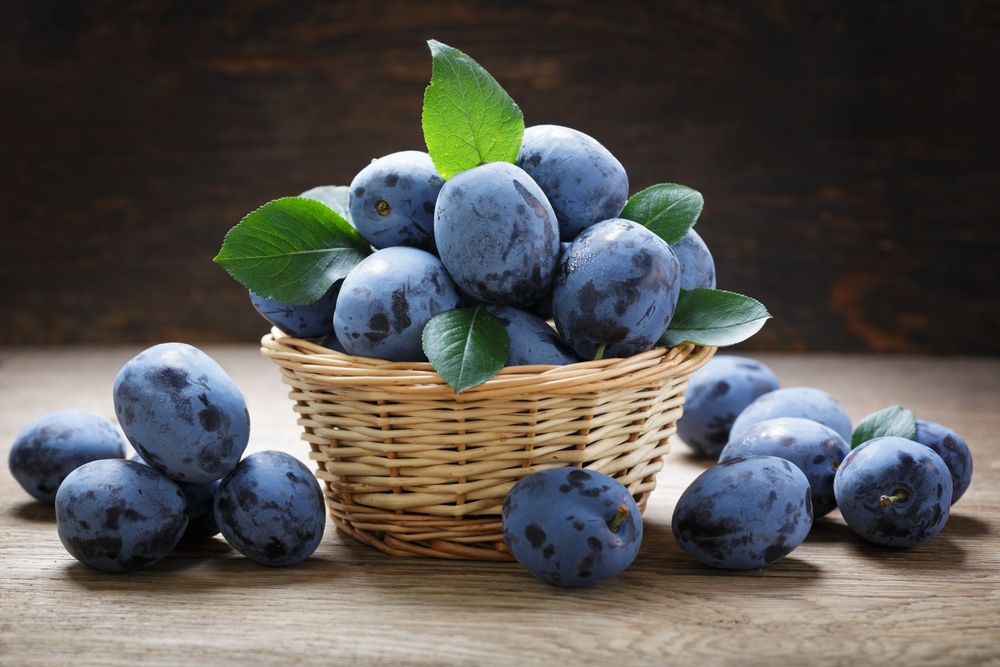
Plums emerge as a sweet and gratifying fruit that merits inclusion in your weight loss repertoire. With a solitary plum delivering a mere 30 calories, along with 1 gram of dietary fiber and natural sugars, plums provide a wholesome substitute for sugary snacks. Their fiber content not only bolsters digestive well-being but also elevates feelings of fullness, curtailing the risk of overindulgence. Furthermore, a recent study featured in the Journal of Nutritional Science highlights the supplementary health advantages of plums, including the reduction of LDL ("bad") cholesterol levels.

